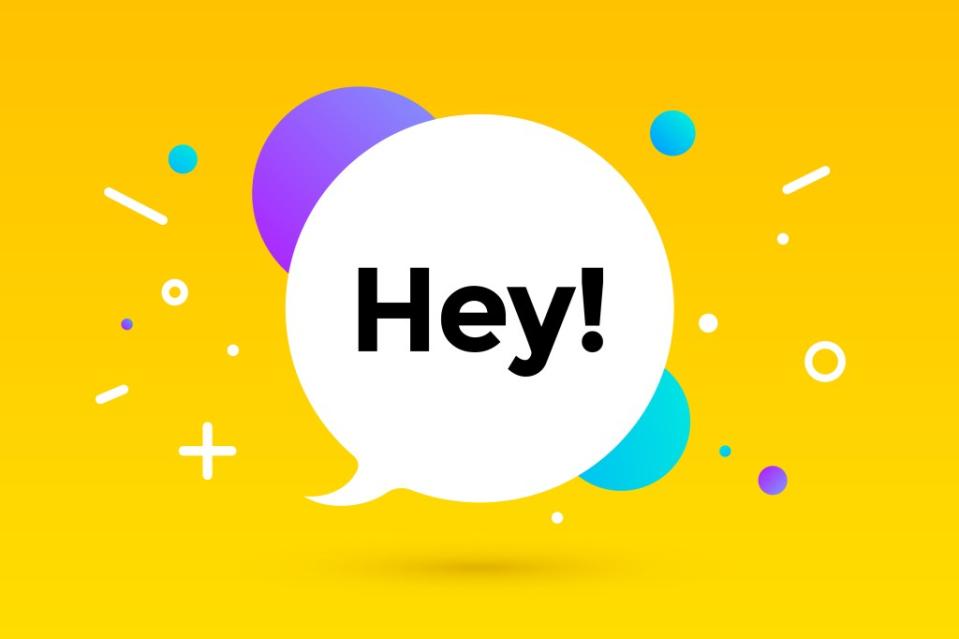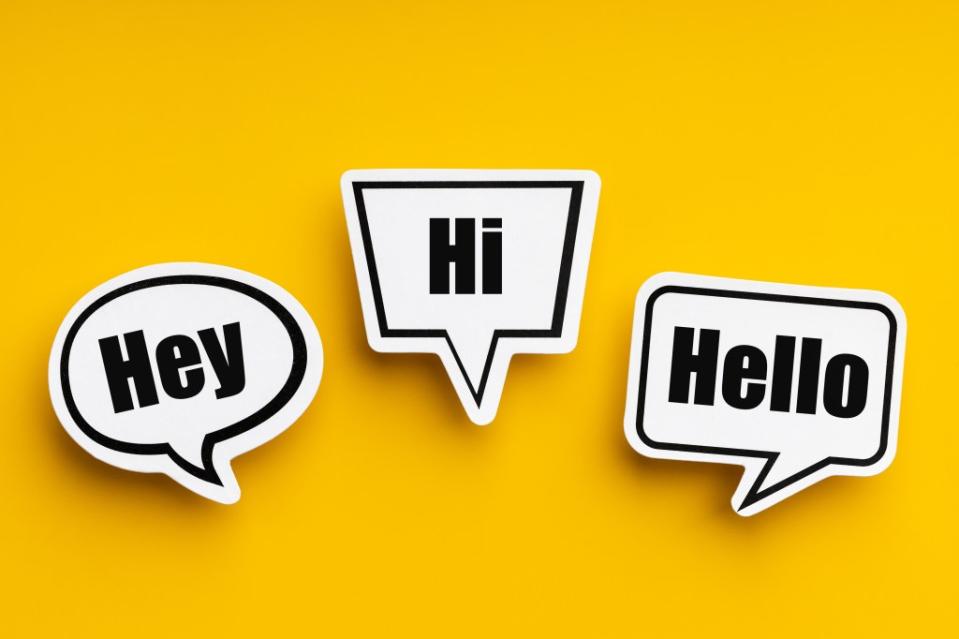This one word will ruin your day at work: ‘My mind goes to the worst places’

Hey.
It’s just one word, but it drives a lot of uncertainty and anxiety in the workplace.
“It’s like, ‘Am I fired? Am I in trouble? Is your mom OK?’” Atheina Hasbani, a 31-year-old account director at the Lucky Generals ad agency in New York, told the Wall Street Journal. “My mind goes to the worst places.”

The hey-and-wait instant-message phenomenon — also dubbed “hey hanging” — is when someone messages you the one-word message with no other context.
Hey hanging can arrive via Slack, Microsoft Teams Google Chat or text message, and can also come in the form of “hi,” “hello,” “hi/hey there,” “hi hi” and so on.
No matter what form it comes in, it most likely is just a simple way to get your attention — but it leaves employees thinking the worst, such as a potential firing or other bad news, or a friendly trap that will inevitably add more work to your plate.

“The brain has to know ‘What’s going to happen?’ for survival,” Bryan Robinson, a psychotherapist and author of a book on hybrid work, explained to the outlet, adding that the simple message can trigger a fight-or-flight response. “Our minds go, ‘I’m in hot water.’”
“If it’s plain ‘hey’ or ‘hi,’ I’m going down a terrible rabbit hole,” Hasbani shared.
Harrison Luongtran, a 42-year-old creative director at Lucky Generals who is more senior than Hasbani, admitted that he is learning that “apparently, there are a lot of rules” with his younger Gen Z colleagues.
“There doesn’t seem to be any clear etiquette about how to converse anymore,” said Kate Buchanan, who helps lead workforce innovation initiatives for software company Autodesk, admitting that she is often guilting of hey hanging.

Tracy Brady, senior vice president of communications for a cannabis company, added that instant messaging and quick forms of conversation are “the Red Bull of communication.”
“It’s that back and forth, you and me, right now, how do I get you to pay attention,” Brady said.
According to WSJ, Slack said 700 million messages are sent across its channels every day, and Microsoft said its heaviest users get about 150 chats per day on top of the more than 250 daily emails.
Robyn Jackson Malone runs her own public relations agency in Chicago, and she defends hey hanging as an easy way to start the day without too much information.
“It’s kind of rude to jump into someone’s texts and word-vomit whatever I want,” she shared. “But now I’m seeing it’s a thing that people don’t necessarily love.”

The conversation even made its way to X (formerly Twitter), with one user asking, “Someone messages you ‘hi’ on Slack/Discord…what is the right response?”
“Wait for the follow-up,” one person said.
“Ignore,” another responded.
“Block,” someone quipped.
A couple of users responded with a link to a website called nohello.net, which urges the recipient, “Please don’t say just hello in chat.”
“Imagine calling someone on the phone, going hello! then putting them on hold,” the website reads.
As the site states, when communication is “done right — everyone’s happy!”

